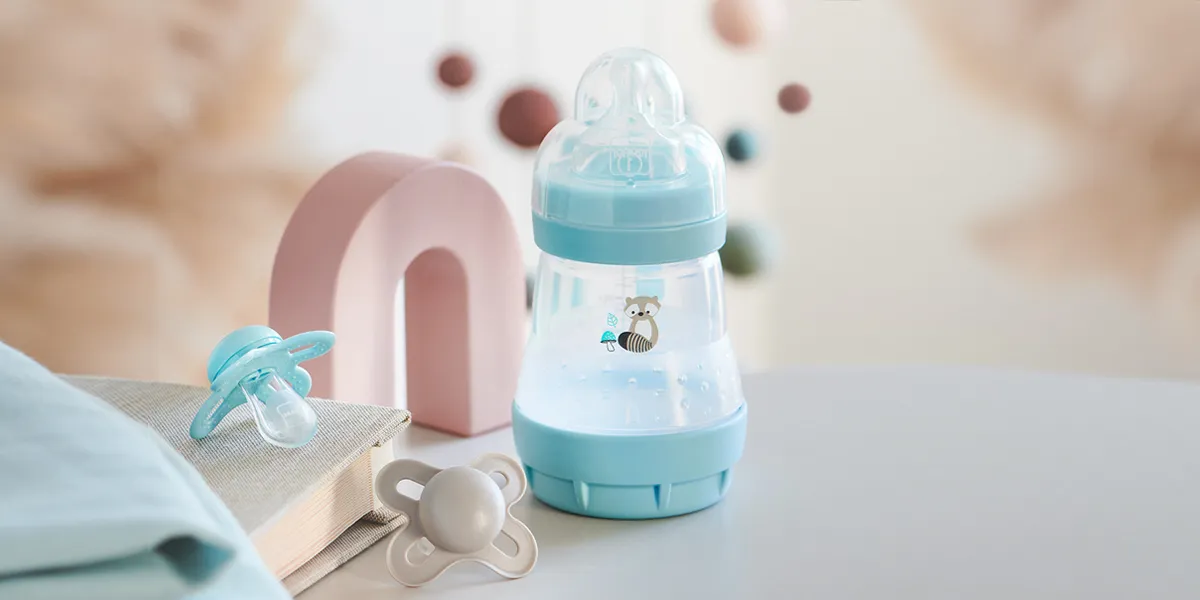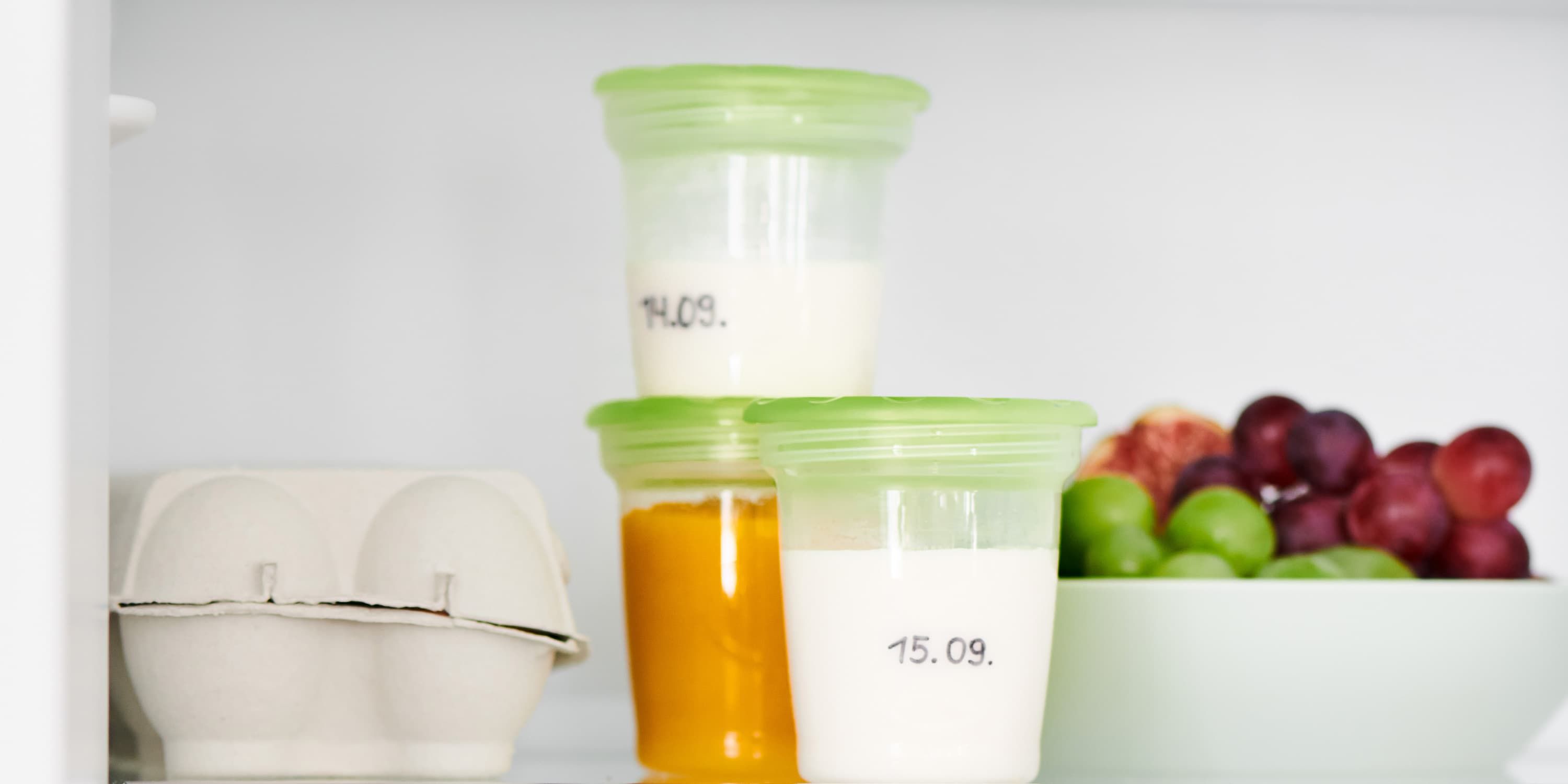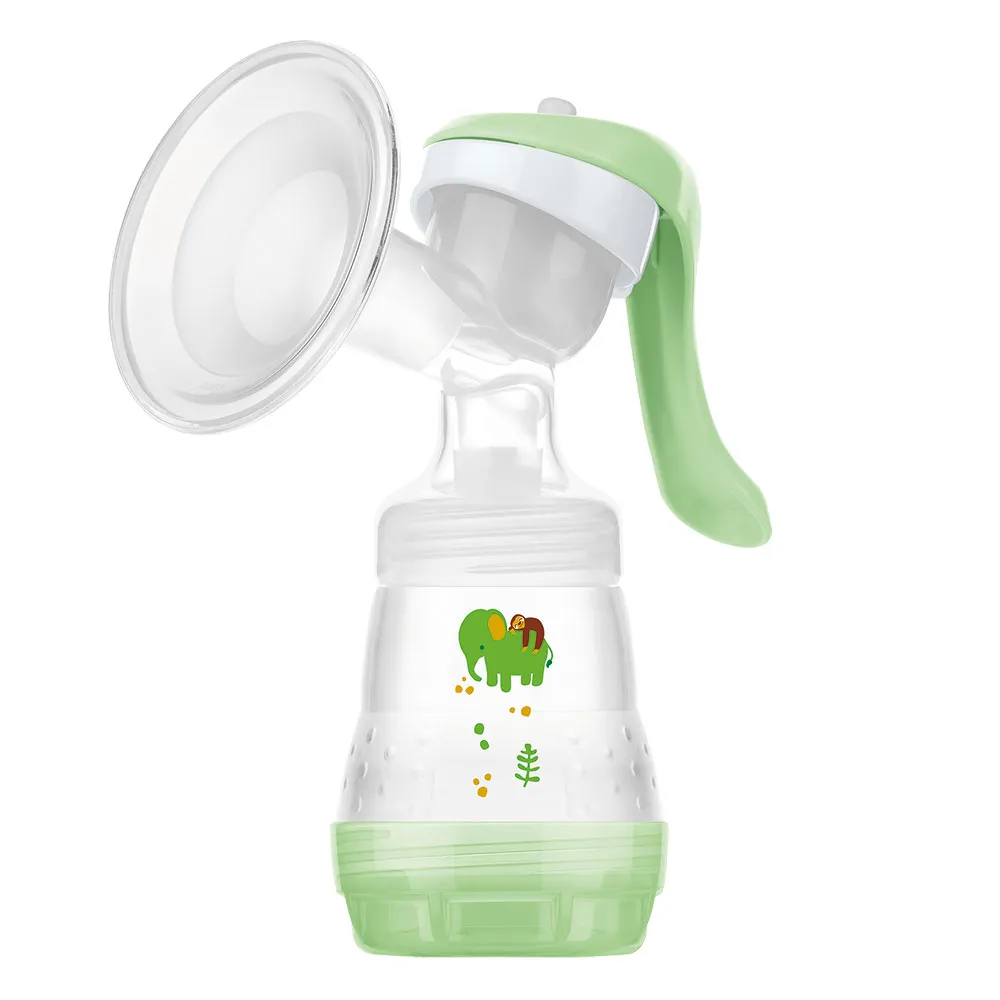Nutrition-Do's while breastfeeding
Drink Plenty!
When you are breastfeeding, you give out a lot of fluid through the milk. You should therefore drink around 11 cups throughout the day. Ideally, you should have a drink with every breastfeed so you have a good idea that you are drinking enough each day. Tap water, mineral water, and unsweetened herbal and fruit teas are ideal. It has not yet been scientifically proven whether special lactation teas (aniseed, dill seed, marjoram) actually promote milk production. However, if you like these teas, you are welcome to drink them in the recommended daily amounts. Sage and peppermint tea are considered to inhibit milk production. You can drink them if you want to stop breastfeeding.
Eat Well - Include nutrients in breastfeeding diet
Wholemeal bread, wholemeal flakes, brown rice, whole wheat pasta, potatoes, fruit, and vegetables should make up more than half of your diet. What they all have in common is that they provide carbohydrates and fiber. Whole grain cereal products are rich in B vitamins and magnesium. Green vegetables contain a lot of folic acid and fruits usually contain a lot of vitamin C. A healthy mix can supply you with many secondary phytochemicals. These do not provide energy nor do they have a nutrient function, they are not essential to life but they are health-giving, and they usually occur only in small amounts in plant-based foods and act in our body like medicines without side effects.
All in all, these foods fill you up in a healthy manner and help prevent constipation.
You need more protein-rich food for milk production. Milk, yogurt, and cheese, as well as fish and meat are good ways of meeting this increased need. But vegetable protein sources such as legumes are also a good option. Things don’t run smoothly without vegetable fats. You should cook with canola and olive oil, and you should also eat a handful of unsalted nuts each day. This enriches your milk with high-quality fatty acids.
Regulate Iron Loss
Your body no longer needs iron while you are breastfeeding, but if your iron reserves were depleted during pregnancy, they should be replenished as soon as possible. Meat is known for its high iron content, but plant-based foods such as millet, oats, and unripe spelt, and vegetables such as spinach, chard, corn salad, and beetroot are good sources of iron. Since vitamin C improves your body’s absorption of plant-based iron, drink a small glass of orange juice with it, for example. If you are a vegetarian, you can even replenish your depleted iron stores with plant-based foods alone.
Increase Your Iodine Intake!
While breastfeeding, your need for iodine is significantly increased (260 mcg/day in Germany and Austria). The iodine content of breast milk depends largely on your own iodine supply. A lack of iodine can impair the physical and mental development of your baby, so an adequate supply of iodine is very important.
Consuming salt-water fish and seafood as well as milk and dairy products contributes to your iodine supply, as does the use of iodized salt. As a breastfeeding parent, it is recommended that you eat salt-water fish once or twice a week if possible. Bread and meat products made with iodized salt should also be favored. In addition to consuming iodized salt and foods containing iodine, breastfeeding parents should also take daily iodine tablets (100 mcg iodine/day) after consultation with their gynecologist.
Can my baby have a reaction to something I eat?
Legumes, citrus fruits, spicy food, etc. pass into breast milk and can cause bloating or diaper rash. All of this can happen, but it doesn’t always, so you don’t necessarily have to cut out citrus fruits, chili and so on. Experiment with small amounts to see how your baby reacts to citric acids or spicy foods. Some babies get diaper rash, but others tolerate these foods very well.
However many times you hear it, it's not true: Babies don’t get bloated just because their breastfeeding parent likes to eat chickpeas or onions. If you eat and tolerate gassy foods and were already eating them during pregnancy, it probably won’t affect your baby. Your baby is already familiar with these ingredients from the amniotic fluid and can then recognize them in the milk.
Protection Against Allergies
Even if your child has an increased risk of allergies, you should not cut out certain foods. Breastfeeding is the best protection against allergies and cutting out healthy foods that may cause allergies, such as milk, does more harm. In this example, the calcium supply could be at risk. There is a lack of scientific evidence recommending avoiding possible allergens during breastfeeding. However, there is evidence that eating high-fat saltwater fish reduces the risk of atopic illnesses such as asthma, hay fever, and eczema. In very rare cases, the baby may have an allergic reaction to the cow’s milk in the breastfeeding parent’s diet. Cutting out milk and dairy products from your diet on suspicion makes no sense. You should investigate this first with the help of your pediatrician.
Breastfeeding brings a whole new set of tasks for you. Try to take a nice break with some healthy food. Putting together a colorful plate every day is more important than worrying about calories and individual nutrients in detail. Enjoy your time breastfeeding your child!
Sources:
Ernährung und Bewegung von Säuglingen und stillenden Frauen [Nutrition and physical activity of infants and breastfeeding women]
Updated recommendations from “Gesund ins Leben – Netzwerk Junge Familie” [Healthy Start – Young Family Network] an initiative from IN FORM, August 2016
































